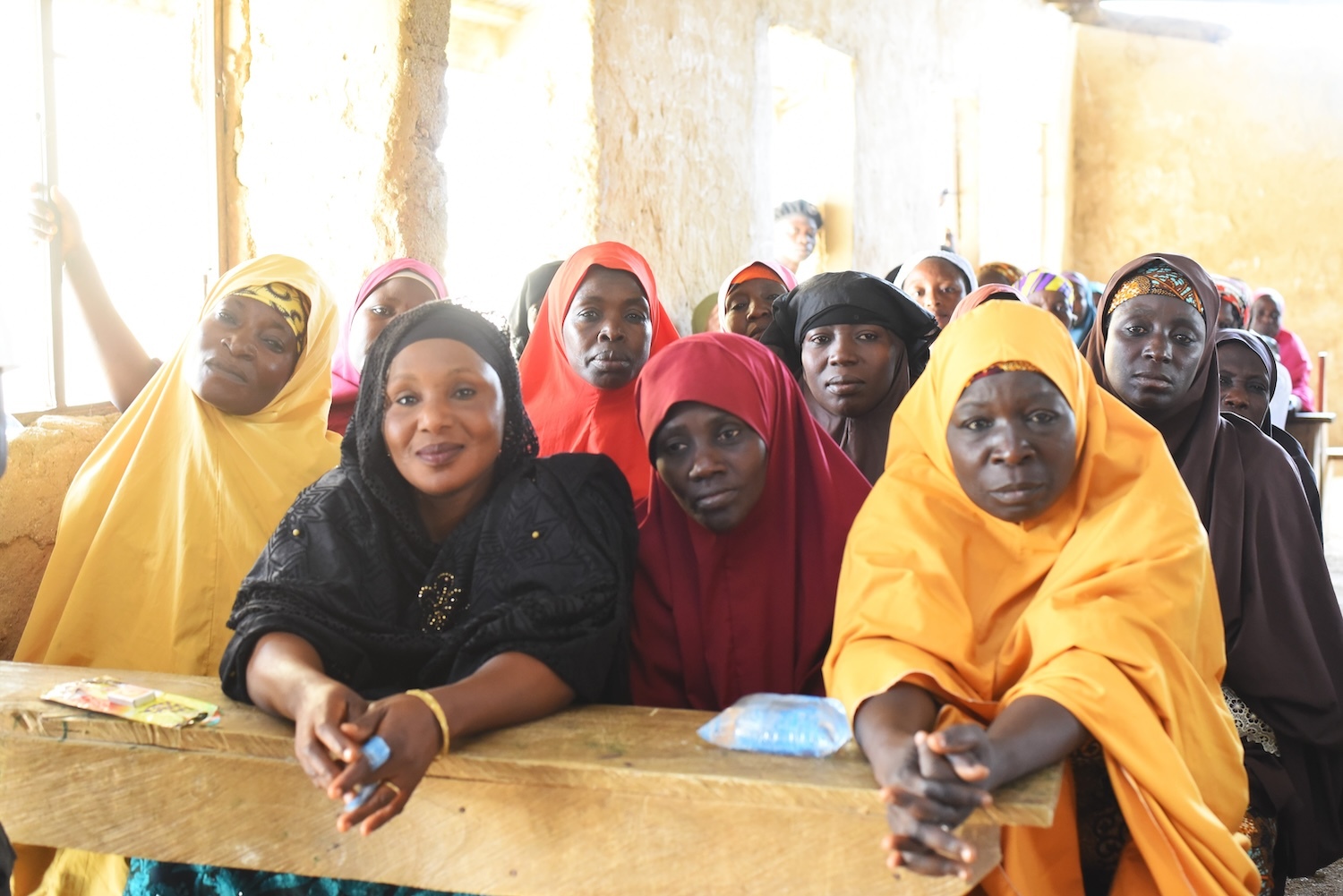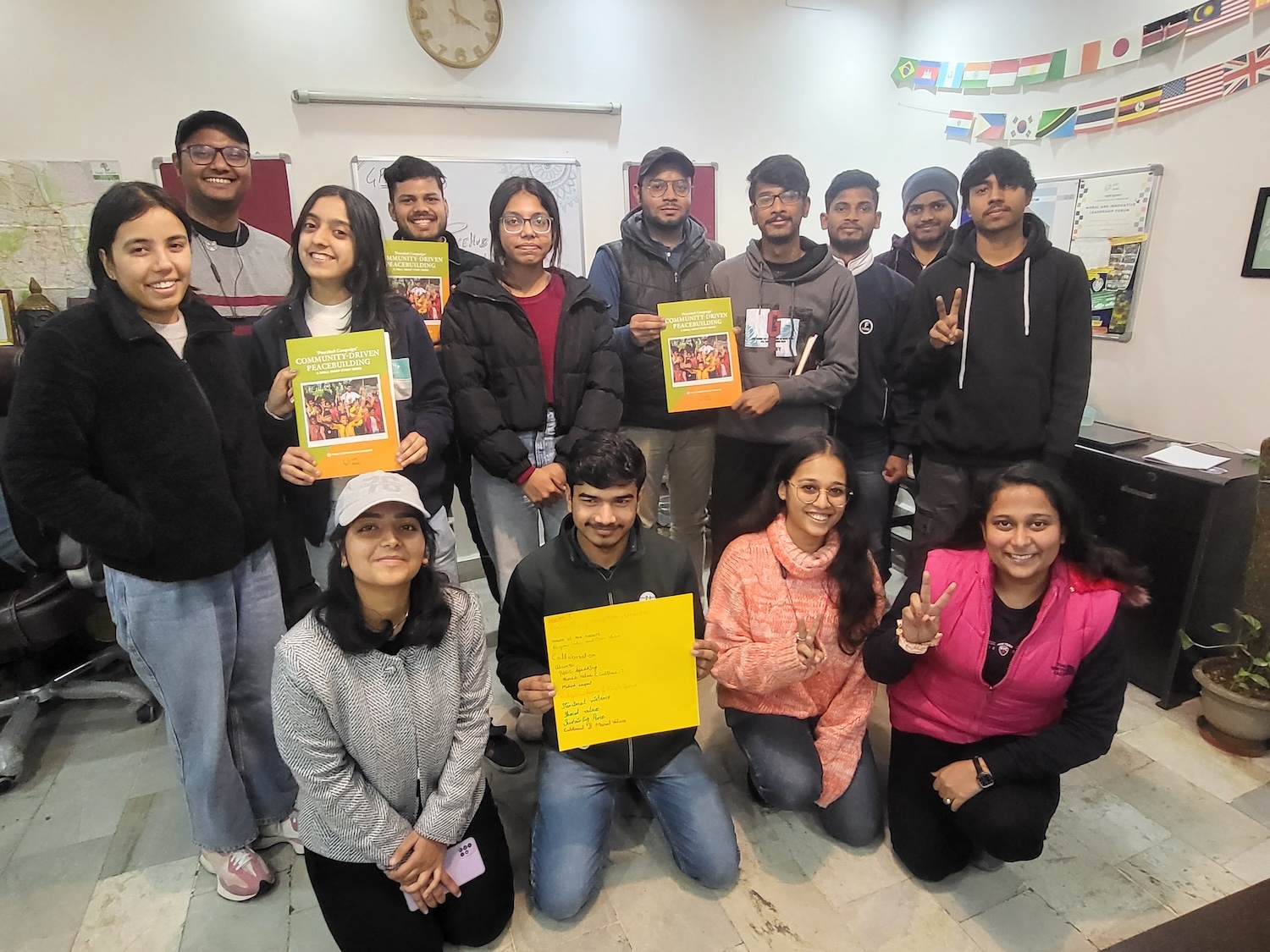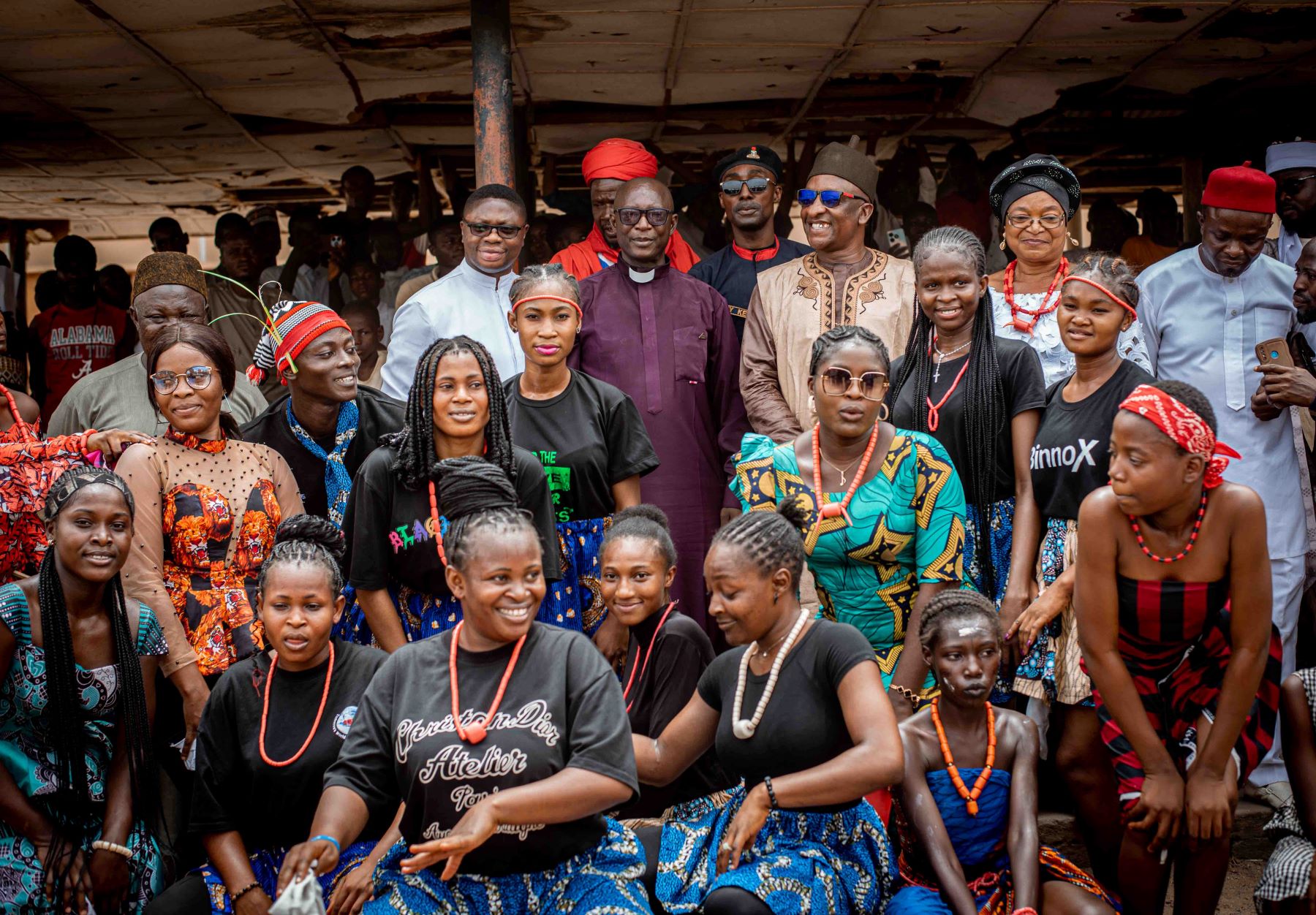The following story was contributed by a volunteer with Global Peace Foundation’s Communities United for Pure water (CUP) in Malaysia.
It is afternoon, but the village is still. The adults have left early to work in the neighbouring plantations, gathering oil palm fruit that sell at RM2-3 (USD0.50-0.80) per sack. The silence is occasionally broken by the crow of a rooster or the tinkling laughter of children at play.
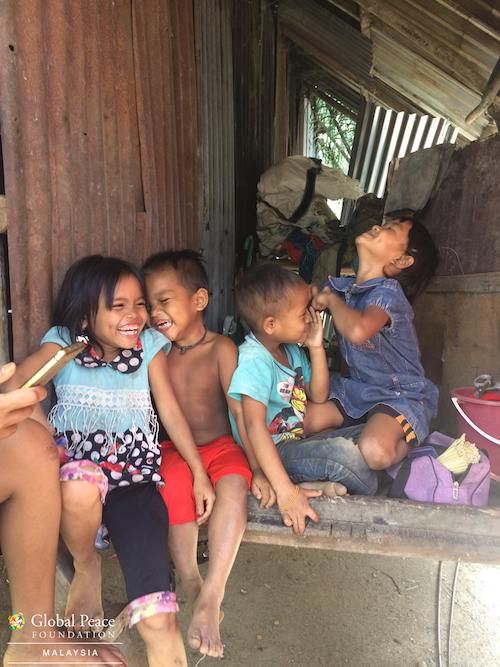
These kids were as curious about me as I was about them. They showed me around and weren’t camera shy
Kampung Padang in rural Muadzam Shah is hidden from sight by tens of kilometres of jungle and plantation land on all sides. There are about 130 orang asli (indigenous people) of the Jakun tribe living here. This translates roughly to about 24 families living in 19 houses. Most of their homes are made of wood and corrugated metal. Some have fallen into disrepair and are haphazardly patched up with plywood and plastic sheets. The design is rudimentary; inside one of these houses is an open space that is divided into a kitchen and living area that doubles as a bedroom at night. There isn’t much furniture and what belongings they have are piled against the wall or hung from the rafters.
The pitter patter of small feet leads me to a group of kids aged between four to six. With nothing to do and no school to occupy them, these children play and wait for their parents to return all day. Most of the orang asli children here do not attend school and even if they do, they rarely complete their schooling, choosing instead to drop out and work. Such is the case for Nurasian, a 19-year-old who had stopped her schooling early and is now married. She spends her time in the company of her younger siblings or doing housework.
She is shy but soon we get to talking about family, school, and her life. When asked if she would consider moving away, she answers, “Here is where my father and mother live. Here is where I was born. Here is my village, forever and ever.”
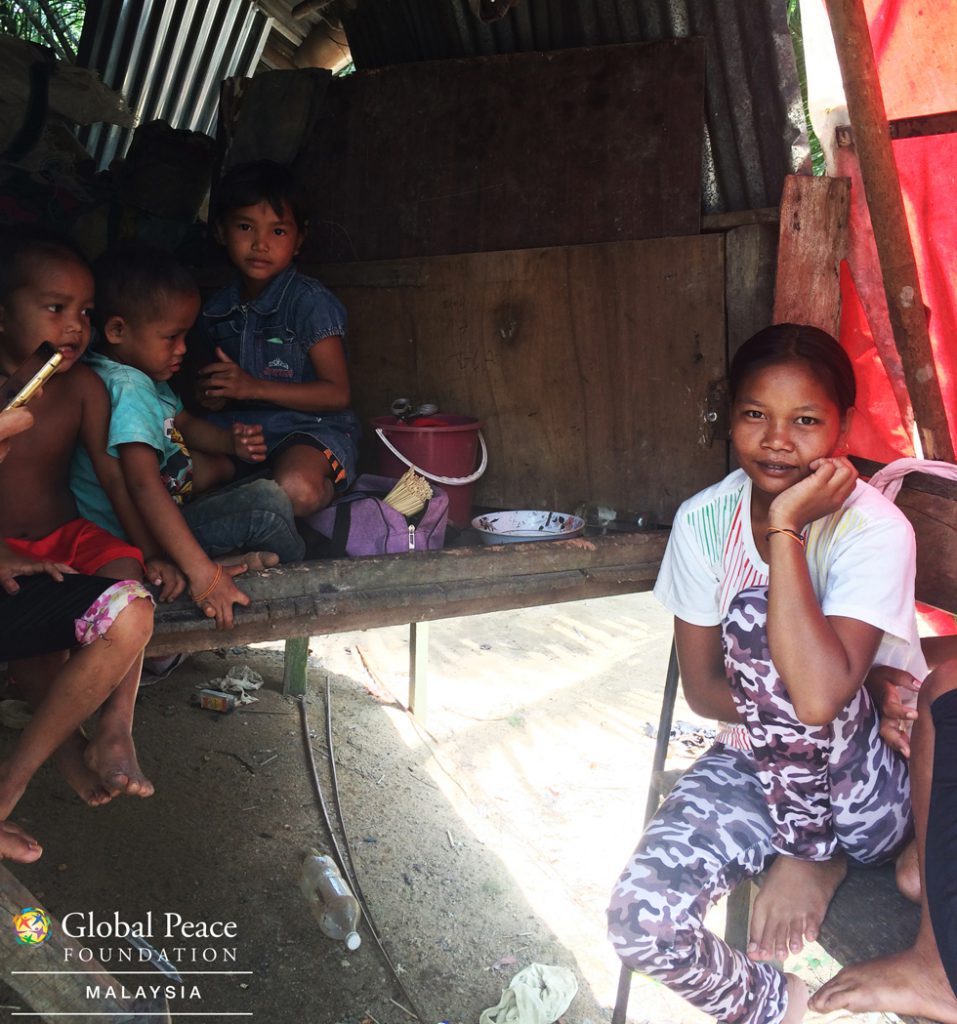
Nurasian, 19, watches over her younger siblings while her parents are away at work.
This is true for most if not all of the orang asli that we have talked to. They expressed no interest to live in the neighbouring towns or cities, preferring instead the quiet and simplicity of village life and living off the land. Hunter-gatherers by nature, part of their day is spent in the jungle foraging for pucuk ubi (tapioca leaves), asam paya (Eleiodoxa fruit), and buah pinang (areca nut). Fishing is also a common activity and sometimes they trap wild chickens and birds for food.
The orang asli of Kampung Padang rely on water from a self-dug well for drinking, cooking, and washing. The well is located half a kilometre away and it takes 15 minutes to walk there through an overgrown path. Walking back with their load of water, however, is a daunting chore, especially for the women tasked with fetching water. This 30-minute journey to the well and back while being weighed down by several gallons of water happens a few times a day, and is the painful reality for the people here who have no choice or are powerless to change their situation.
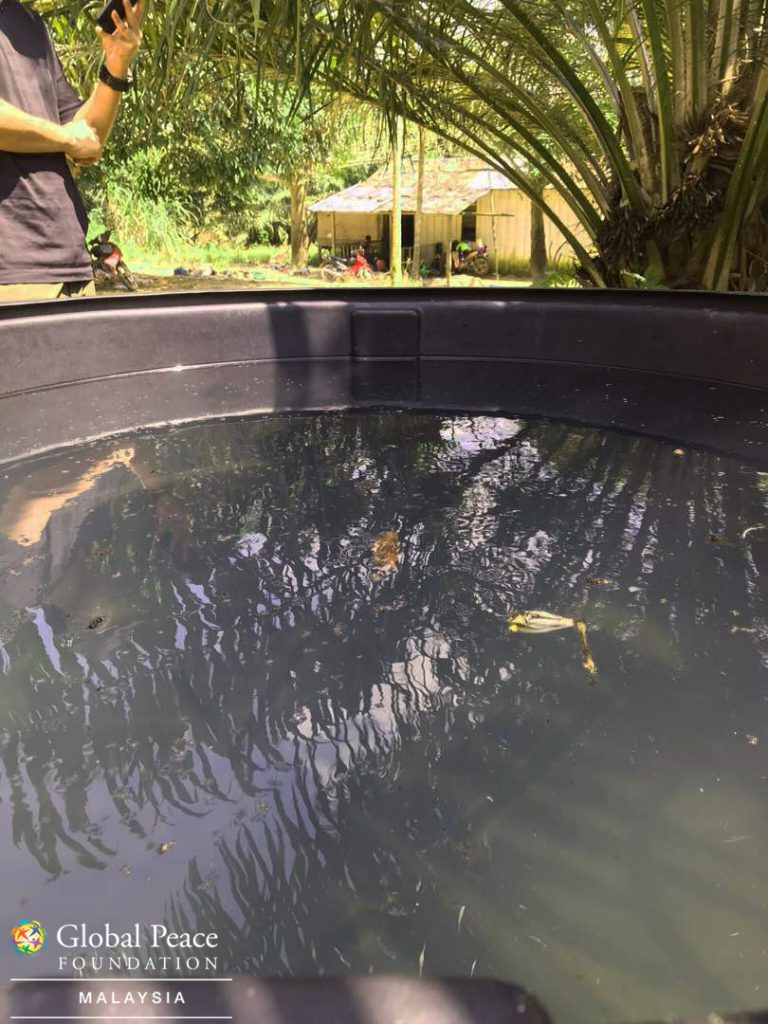
The tank slowly filling up with water from the well. The water is cloudy and has bits and pieces of debris but with the LifeStraw filters, this water will be safe to drink even without boiling.
It is Global Peace’s seventh visit to Kampung Padang. For the past few trips we have been trying to install a pump and piping system to help transport water from the well into a communal tank within the village itself. This time around, we came with a different pump model hoping that it would work. It took two days and countless tries but thanks to the help of our partner, Engineers Without Borders, we came up with a final setup that worked.
In addition to making it easier to get water, Global Peace also provided the village with LifeStraw water filters that remove up to 99.9999% of bacteria, viruses, and protozoa. It is easy to use and maintain, and has been highly adopted in countries with water poverty. Kampung Padang is part of Global Peace’s efforts in uplifting the welfare of communities in need, starting with clean water. Read more about the Communities Unite for Purewater (CUP) initiative here.
As water flows into the tank, Anita, the wife of village chief Han, is the first to use it. She hugs her young daughter Rozana close and tells us that she believes life will be a little easier from now on.

